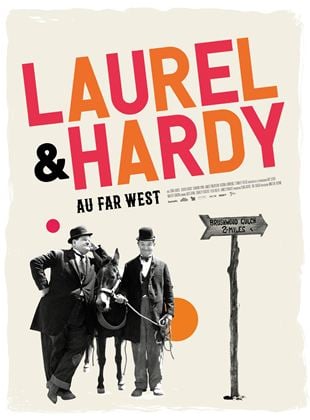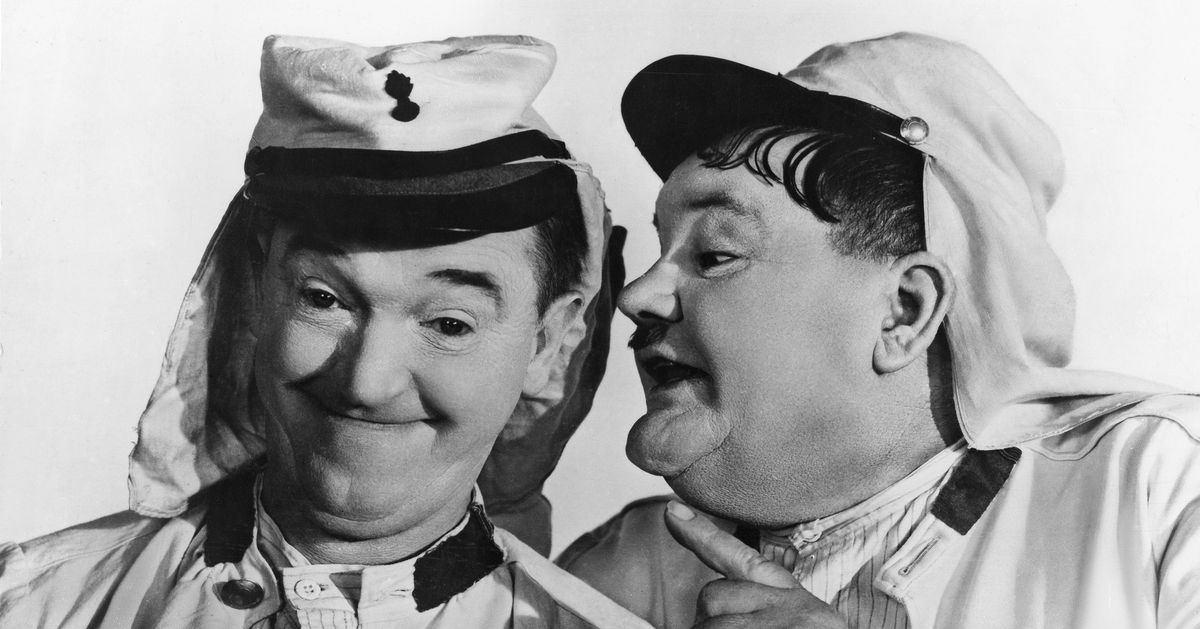
A partial remake of the lost Laurel & Hardy short “Hats Off” (1927). Much of the time we see the piano in this film it is, in fact, an empty crate, far lighter and more maneuverable than the real thing, but the shot of the piano careening madly down the 131 steps contained an actual instrument. They hauled one across a narrow, swaying suspension bridge in Swiss Miss (1938) and hid inside one in Way Out West (1937). Laurel and Hardy made something of a cottage industry out of destroying pianos in such films as Big Business (1929), Wrong Again (1929), Beau Hunks (1931), and Dirty Work (1933). They also talk about the film’s effect on science fiction writer Ray Bradbury, as well as this info about the piano in this short (or lack thereof): TCMDB has an excellent article about the legend behind this short, including the years spent tracking down those stairs by dedicated fans. #When were laurel and hardy movies made free#
Neighbors adore it when you throw pianos down the stairs, too, I’m sure, so feel free to do it. The area has been built up since then, but they’re there! You can find them here via Google Maps.
 The steps featured here are commonly known as “The Music Box Steps” and can still be visited in Los Angeles. All of my images are taken by me– please feel free to reuse with credit! “The Music Box” is an essential comedy, and one of the apexes of early 30s comedies. Mind you, they’re really just making a bigger mess and simply too happy– and too near the end!– for it to matter. The highlight of the short, for me at least, is that after the painful physical comedy with a good share of blood being drawn, the two still find a moment to do some mirthful tap dancing as they clean up their mess. They’re trapped in this nightmare scenario, and they see the audience as on their side. These are often punctuated with takes at the camera, filled with resentment and disgust. They’re known as the masters of the slow burn– indignities upon indignities with a pause and a beat, a moment of anticipation and escalating anger. They then lay waste to the home they’re delivering the piano to just to add insult to injury– their own as well as the stuffy foreigner who occupies the house.įor anyone not familiar with Laurel & Hardy’s antics (a thing I certainly have trouble believing), let’s step back and observe their comedic demeanor. It betrays a simple premise: two hapless movers take a piano up a lengthy staircase, is rife with comedic possibilities, all exploited. “The Music Box” is often held up as one of the best gateways into the comedy of Stan Laurel and Oliver Hardy. “Yes, officer, he kicked me! Right in the middle of my daily duties!”
The steps featured here are commonly known as “The Music Box Steps” and can still be visited in Los Angeles. All of my images are taken by me– please feel free to reuse with credit! “The Music Box” is an essential comedy, and one of the apexes of early 30s comedies. Mind you, they’re really just making a bigger mess and simply too happy– and too near the end!– for it to matter. The highlight of the short, for me at least, is that after the painful physical comedy with a good share of blood being drawn, the two still find a moment to do some mirthful tap dancing as they clean up their mess. They’re trapped in this nightmare scenario, and they see the audience as on their side. These are often punctuated with takes at the camera, filled with resentment and disgust. They’re known as the masters of the slow burn– indignities upon indignities with a pause and a beat, a moment of anticipation and escalating anger. They then lay waste to the home they’re delivering the piano to just to add insult to injury– their own as well as the stuffy foreigner who occupies the house.įor anyone not familiar with Laurel & Hardy’s antics (a thing I certainly have trouble believing), let’s step back and observe their comedic demeanor. It betrays a simple premise: two hapless movers take a piano up a lengthy staircase, is rife with comedic possibilities, all exploited. “The Music Box” is often held up as one of the best gateways into the comedy of Stan Laurel and Oliver Hardy. “Yes, officer, he kicked me! Right in the middle of my daily duties!” 
This disc also offers a wealth of special features that will be discussed later in this review.Released by MGM | Directed by James Parrott

Having only seen the footage presented in Robert Youngson's 1958 anthology The Golden Age of Comedy, the complete surviving elements were a true revelation (I didn't realize there were extra shots in the pie fight itself). However, perhaps the most important item on his disc is the newly restored Battle of the Century, a 1927 silent that features the screen's greatest pie fight.

This early 1929 talkie is presented with its rare original soundtrack and also with its more familiar 1936 re-release soundtrack. This disc also includes Berth Marks, a film that I always championed as being woefully underrated. As far as the film itself is concerned, it is probably Laurel and Hardy's most perfect feature-length movie, which means it is one of the absolute greatest comedies ever produced by anyone. While each image exhibits brilliant clarity, there is still ample film grain retaining the integrity of the visual image. Laurel and Hardy's quintessential feature film Sons of the Desert is fully restored with a sharpness of detail that is truly remarkable.








 0 kommentar(er)
0 kommentar(er)
